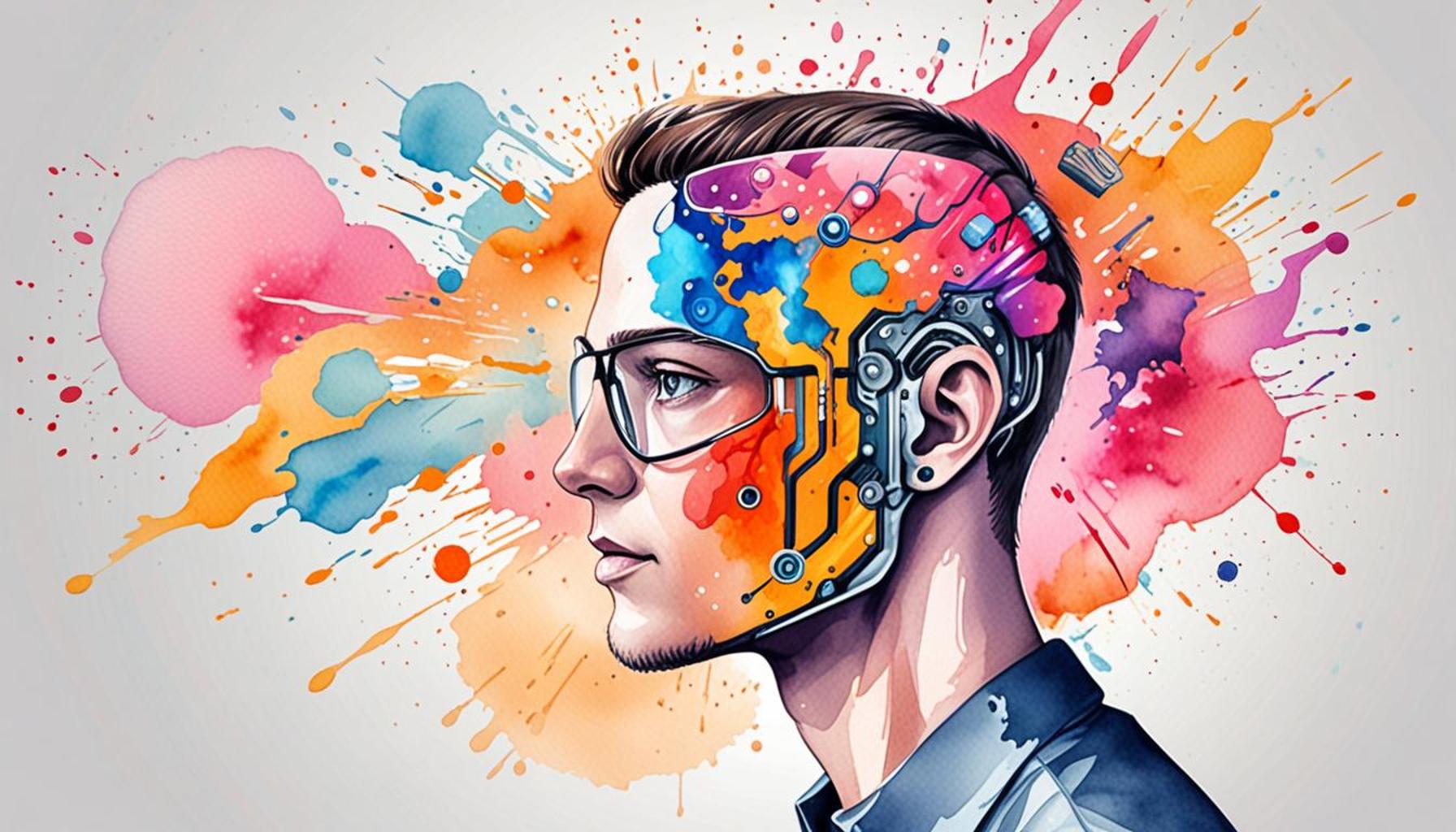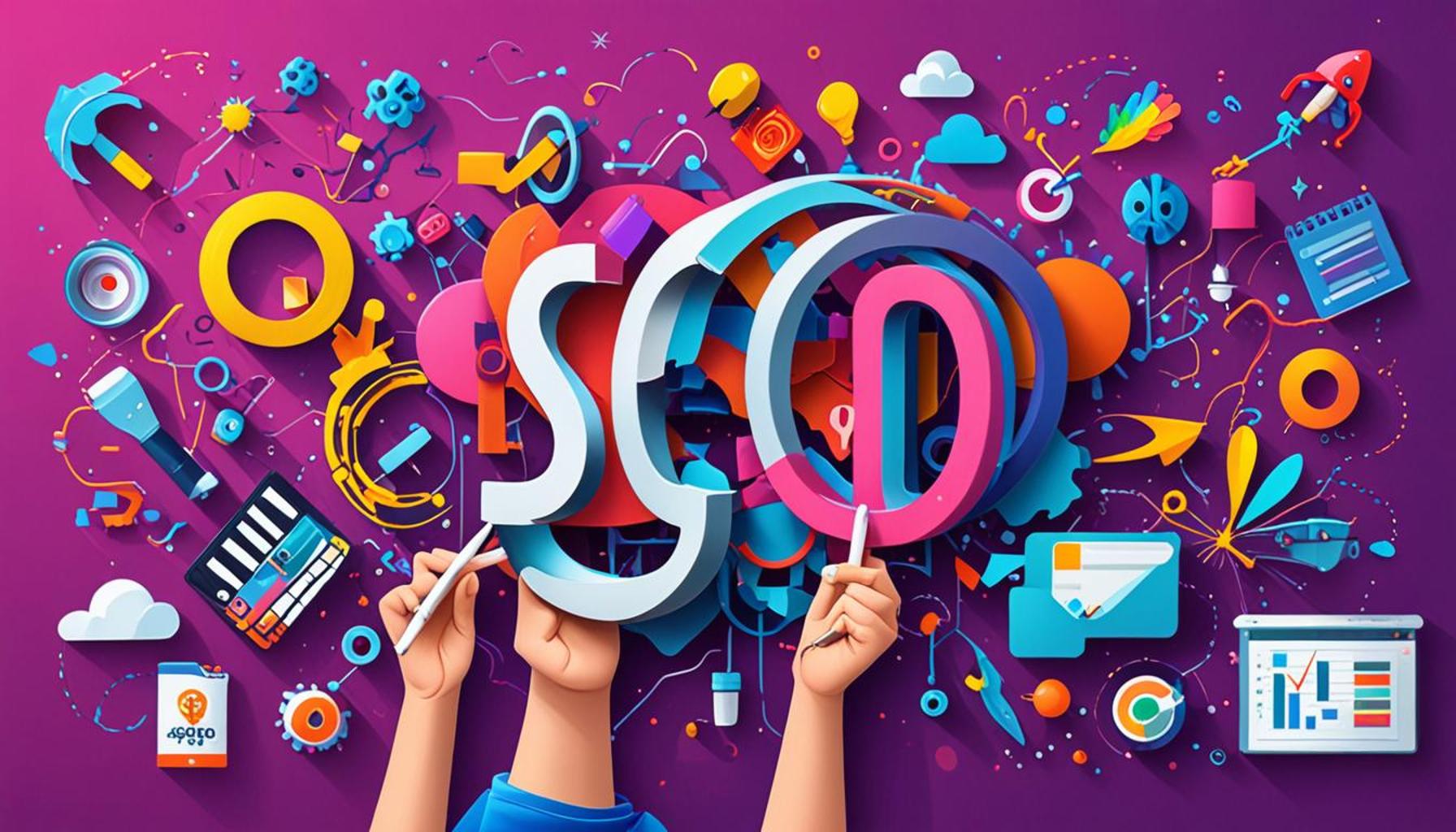Emerging Trends in Digital Marketing: The Impact of Artificial Intelligence

Understanding AI’s Role in Digital Marketing
The landscape of digital marketing is shifting rapidly, and one of the most significant drivers of this change is artificial intelligence (AI). As businesses seek to optimize their marketing strategies, AI technologies are being integrated to enhance decision-making processes and improve customer interactions. This evolving trend offers vast opportunities and challenges for marketers.
The Power of Personalization
Personalization is at the forefront of the digital marketing revolution, largely thanks to AI. By analyzing vast amounts of consumer data—from browsing histories to purchase patterns—AI can create tailored marketing experiences that resonate with individual customers. For example, platforms like Netflix and Spotify utilize AI algorithms to provide personalized content recommendations, keeping users engaged and more likely to consume more content. In a retail context, e-commerce giants like Amazon employ similar strategies, showcasing products based on prior searches and purchases to enhance the shopping experience.
Enhancing Anticipation with Predictive Analytics
Another impactful aspect is predictive analytics, which allows businesses to anticipate customer needs before they arise. By leveraging historical data and machine learning models, companies can identify trends and make informed decisions to improve customer retention. For instance, a subscription box service may analyze customer feedback and purchasing behavior to predict when a user is likely to cancel their subscription, enabling proactive customer engagement strategies that address potential concerns.
The Role of Chatbots in Modern Marketing
The adoption of chatbots has revolutionized customer service by providing 24/7 support. These AI-driven tools engage customers in real-time, answering questions, guiding purchases, or resolving issues without human intervention. This not only increases engagement but significantly boosts customer satisfaction. For example, companies like Sephora use chatbots on their websites and social media platforms to assist customers with product choices, skincare advice, and order tracking.
Resource Allocation and Strategic Focus
Moreover, the integration of AI is reshaping resource allocation for marketers. AI automates routine tasks such as data analysis and email marketing, freeing up valuable time and resources for strategic initiatives. This shift enables brands to focus on creative and high-impact projects rather than mundane processes. Companies leveraging AI not only gain a competitive edge but also streamline their marketing efforts, enhancing overall efficiency.
The Importance of Adaptation in Marketing Strategies
As digital marketers adapt to these changes, understanding the complexities of AI applications becomes imperative. Technologies such as machine learning and natural language processing are constantly evolving, and staying updated can unlock potential growth avenues. For instance, brands that effectively utilize AI-driven insights can tailor their strategies faster and more accurately than competitors, setting themselves apart in a crowded marketplace.
In conclusion, the impact of AI on digital marketing is profound and multifaceted. Its powers of personalization, predictive analytics, and automated customer support offer marketers new tools to connect with consumers more effectively while boosting operational efficiency. As this technology continues to evolve, organizations that embrace these changes will find themselves well-positioned to harness future opportunities and tackle emerging challenges in the digital marketing arena.
YOU MAY ALSO LIKE: Read read another article
Transforming Customer Experiences through AI
As digital marketing continues to evolve, the incorporation of artificial intelligence (AI) is undeniably transforming customer experiences across various platforms. This is not merely a trend; it is an integral component of how brands are redefining interactions with their audiences. AI-driven tools are streamlining processes that once required significant human involvement, thereby enhancing efficiency and personalizing the customer journey.
Smart Data Utilization
The foundation of effective digital marketing hinges on data—and AI takes data utilization to unprecedented levels. Marketers must now harness big data analytics to extract actionable insights more effectively than ever. Instead of manually sifting through data, AI algorithms analyze consumer behavior in real-time, allowing marketers to make informed decisions quickly. This capability is especially vital in today’s fast-paced environment where customer preferences can shift overnight.
The Rise of Content Generation
Another notable trend is the emergence of AI-powered content generation. Machine learning models can now create written, visual, and audio content tailored to specific audiences. For instance, companies like OpenAI are developing sophisticated tools that can generate blog posts, product descriptions, and even social media updates. These tools enable brands to maintain a constant flow of content, keeping their audience engaged while significantly reducing time and costs associated with manual content creation.
Key Benefits of AI in Digital Marketing
The advantages of integrating AI technologies into digital marketing strategies are compelling. Some of the key benefits include:
- Enhanced Efficiency: Automating tasks like social media management and ad placements frees marketers to concentrate on strategic objectives.
- Increased ROI: By leveraging data-driven insights, companies can optimize ad spend, target the right audience, and ultimately, improve their return on investment.
- Improved Customer Engagement: AI tools facilitate personalized experiences, increasing customer satisfaction and loyalty through relevant content and recommendations.
- The Ability to Scale: AI enables brands to scale their marketing efforts rapidly without compromising quality, a significant advantage in today’s competitive landscape.
The Data Privacy Challenge
While the benefits of AI in digital marketing are myriad, companies must navigate the data privacy concerns that accompany these innovations. Consumers are increasingly wary and demand transparency in how their personal information is used. Brands that successfully address these concerns are more likely to foster trust and loyalty among their audiences. This means implementing robust data protection measures and ensuring compliance with regulations like GDPR and CCPA, which safeguard consumer rights.
Looking Ahead: Future Innovations
The trajectory of AI in digital marketing is set to advance with continuous technological advancements. Innovations like voice search, image recognition, and augmented reality are expected to redefine how brands interact with consumers. As AI technologies become more sophisticated, marketers will need to stay ahead of the curve, adapting their strategies and tools to meet the evolving needs of their audience.
As we delve deeper into the impact of AI within the realm of digital marketing, it is clear that understanding and adapting to these emerging trends is crucial for brands aiming to create lasting impressions in the digital age.
| Category | Advantages |
|---|---|
| Personalization | AI enables hyper-personalized marketing by analyzing consumer behavior, leading to more relevant ads. |
| Efficiency | Automation of data analysis allows marketers to focus on strategy rather than crunching numbers. |
| Predictive Analytics | Utilizing AI for predictive modeling helps businesses anticipate market trends and user needs. |
| Cost Reduction | AI tools streamline marketing processes, reducing overall costs and increasing ROI. |
In this context, personalization stands out as a formidable advantage provided by artificial intelligence. By leveraging intricate algorithms, AI systems can paint a vivid picture of consumer preferences, enabling businesses to implement targeted campaigns that resonate with individual users. This degree of hyper-personalization not only enhances user engagement but also fosters a sense of connection between brands and consumers.Additionally, the implementation of AI leads to significant improvements in operational efficiency. With the ability to automate routine data processing tasks, marketers can redirect their efforts toward creative and strategic initiatives, ultimately driving better outcomes. Moreover, the rise of predictive analytics in digital marketing has revolutionized how brands understand their audience. By analyzing past behaviors and patterns, AI empowers businesses to foresee consumer trends and needs, allowing for preemptive actions to be taken, securing a competitive edge in the market.Finally, AI’s capability to simplify intricate processes translates to substantial cost reduction in marketing campaigns. As resources are utilized more effectively, companies witness increased Return on Investment (ROI), further underscoring the profound impact of artificial intelligence on the digital marketing landscape.
ADDITIONAL INSIGHTS: Expand your understanding here
Personalization at Scale with AI
One of the most significant shifts in digital marketing driven by artificial intelligence is the ability to deliver highly personalized content at scale. This capability allows brands to cater to individual needs and preferences in a manner previously thought impossible. With AI-powered tools, companies can analyze consumer data not just at a demographic level but also based on psychographics and behavioral insights. This nuanced understanding enables marketers to create targeted campaigns that resonate on a personal level.
Advanced Segmentation Techniques
AI facilitates advanced segmentation techniques that go far beyond traditional methods. Marketers can now deploy predictive analytics to identify patterns in customer behavior. By utilizing machine learning algorithms, businesses can segment their audience based on predicted purchasing behavior, preferred communication channels, and engagement levels. This sophistication means that campaigns can be tailored not only to meet current demands but also to anticipate future trends and needs.
Chatbots and Conversational Marketing
The rise of chatbots represents another transformative impact of AI in digital marketing. These AI-driven tools offer 24/7 customer support and engagement, making interactions seamless and efficient. Whether it’s answering queries or guiding users through the sales funnel, chatbots enhance the customer experience by providing immediate responses tailored to user input. According to recent studies, businesses that implement chatbots can see a 30% increase in conversion rates due to improved response times and engagement levels.
Impact on Public Relations and Reputation Management
AI is also making significant inroads into public relations and reputation management. Tools equipped with natural language processing can monitor brand mentions across social media platforms, news outlets, and consumer review sites in real-time. This technology allows businesses to respond swiftly to any potential crisis and engage in proactive reputation management. For example, platforms like MonkeyLearn utilize AI to provide sentiment analysis, enabling brands to assess how customers feel about their products instantly.
The Role of AI in SEO Strategies
As search engine algorithms evolve, the importance of AI in shaping search engine optimization (SEO) strategies becomes increasingly clear. AI tools can analyze vast amounts of data to identify the keywords and phrases that will likely generate traffic and engagement. For instance, AI-based platforms such as Clearscope provide insightful content optimization suggestions based on top-performing competitors. Marketers can harness this intelligence to refine their content strategies, ensuring they stay relevant in a competitive digital landscape.
Ethical Considerations and Responsible AI Use
Despite the advantages AI brings to digital marketing, ethical considerations cannot be overlooked. Brands must tread carefully in their application of AI technologies to avoid infringing on consumer privacy and trust. Transparency about how data is collected and used is vital. Additionally, marketers should implement ethical AI guidelines to ensure that algorithms do not perpetuate biases or discrimination. By fostering a responsible approach to AI, companies can build stronger relationships with their audiences.
With these multifaceted impacts of AI on digital marketing becoming increasingly evident, the potential for innovation and improved customer engagement continues to grow. Brands that leverage these emerging trends effectively stand to gain a competitive advantage in the rapidly evolving digital ecosystem.
CHECK OUT: Click here to explore more
Conclusion: Embracing the Future of Digital Marketing with AI
The integration of artificial intelligence into digital marketing represents a profound shift, reshaping the landscape of how brands interact with consumers. From personalization at scale and advanced segmentation to the rise of chatbots and the daunting prospects of SEO optimization, AI is giving marketers the tools they need to enhance engagement and drive conversion. These advancements come with the promise of efficiency and higher ROI—a tantalizing proposition for businesses eager to seize the competitive edge.
However, as companies rush to harness the power of AI, it is crucial to prioritize ethical considerations. Transparency about data usage and a commitment to avoiding bias are essential to foster trust and cultivate lasting relationships with consumers. The responsible application of AI provides an opportunity not merely for technical advancement but for deeper, more meaningful connections with audiences across the digital spectrum.
Furthermore, the landscape of digital marketing is continuously evolving, and staying abreast of these emerging trends requires an ongoing investment in learning and adaptability. As AI technologies advance, marketers must explore their potential creatively and responsibly. In doing so, they can unlock innovative strategies that not only meet but anticipate consumer needs, leading to enhanced satisfaction and loyalty.
In conclusion, as we stand on the precipice of an AI-driven marketing era, the future looks bright. Brands that embrace these emerging trends while adhering to ethical practices will not only thrive but define the future of digital marketing. The journey has just begun, and the potential for transformation is limitless.

